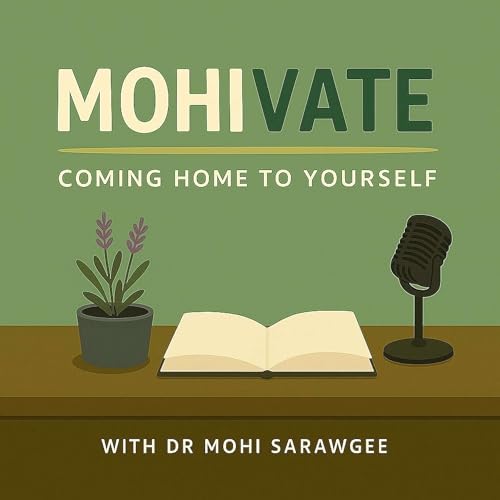
MOHIVATE
カートのアイテムが多すぎます
カートに追加できませんでした。
ウィッシュリストに追加できませんでした。
ほしい物リストの削除に失敗しました。
ポッドキャストのフォローに失敗しました
ポッドキャストのフォロー解除に失敗しました
-
ナレーター:
-
著者:
-
Mohi Sarawgee
このコンテンツについて
Hosted by Dr. Mohi Sarawgee, a GP, MOHIvate is your doctor’s dose of heart and science — with just a touch of humour — because health and feeling good shouldn’t feel complicated. Each episode breaks down medicine and everyday science in a simple, thoughtful way, serving as a reminder that real health can still feel human. I hope you enjoy listening, learning, and carrying a little feel-good factor with you. Thank you for tuning in!
Disclaimer: The information shared in this podcast is for educational and inspirational purposes only. It is not intended to be, and should not be taken as, personal medical advice, diagnosis, or treatment. Always seek the guidance of your own doctor or another qualified healthcare provider with any questions about your health, and never ignore or delay professional medical advice because of something you’ve heard here. The views expressed are my own and do not represent the views of any organizations or institutions I’m affiliated with.
-
 21 分
21 分カートのアイテムが多すぎます
ご購入は五十タイトルがカートに入っている場合のみです。カートに追加できませんでした。
しばらく経ってから再度お試しください。ウィッシュリストに追加できませんでした。
しばらく経ってから再度お試しください。ほしい物リストの削除に失敗しました。
しばらく経ってから再度お試しください。ポッドキャストのフォローに失敗しました
ポッドキャストのフォロー解除に失敗しました
-
 26 分
26 分カートのアイテムが多すぎます
ご購入は五十タイトルがカートに入っている場合のみです。カートに追加できませんでした。
しばらく経ってから再度お試しください。ウィッシュリストに追加できませんでした。
しばらく経ってから再度お試しください。ほしい物リストの削除に失敗しました。
しばらく経ってから再度お試しください。ポッドキャストのフォローに失敗しました
ポッドキャストのフォロー解除に失敗しました
-
 22 分
22 分カートのアイテムが多すぎます
ご購入は五十タイトルがカートに入っている場合のみです。カートに追加できませんでした。
しばらく経ってから再度お試しください。ウィッシュリストに追加できませんでした。
しばらく経ってから再度お試しください。ほしい物リストの削除に失敗しました。
しばらく経ってから再度お試しください。ポッドキャストのフォローに失敗しました
ポッドキャストのフォロー解除に失敗しました


